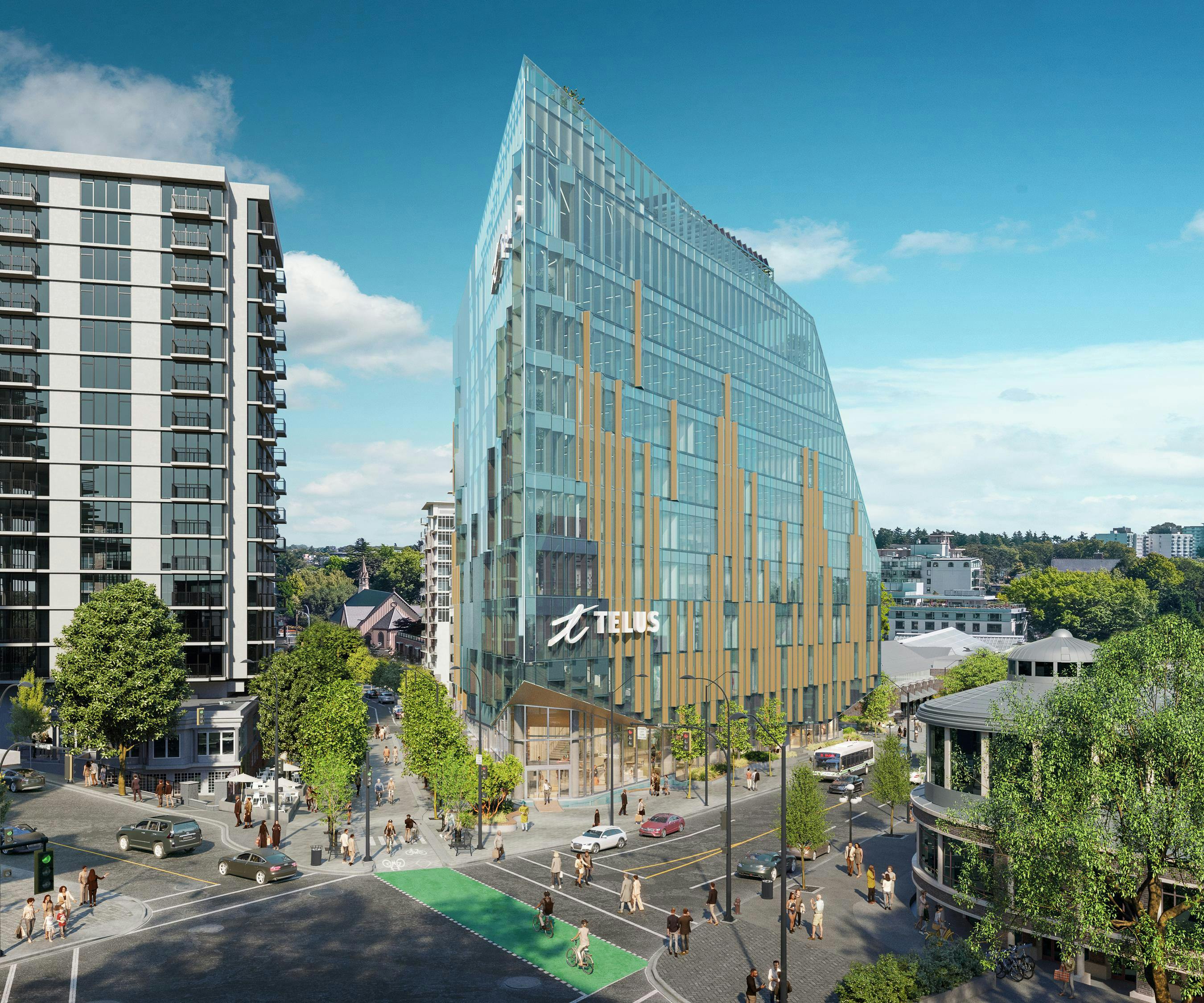
Born and raised on the tiny island of Guernsey, Chris studied urban planning and land development before working in real estate and city planning in the UK and Canada.
He brings a wealth of experience from his time as an urban planning consultant in the UK and relocated to the west coast in 2011.
Could you tell us a little bit more about your career and where it took you around the world?
My career has bounced between roles focused on policy and championing development schemes. After university, I moved to London to work on strategic planning projects covering a wide range of topics such as industrial land, local economic development and the socio-economic impact of new development. Following that I worked as a planning consultant specializing in managing development schemes that included residential master plans, new supermarkets and multi-family developments. These projects took me around the UK and involved working with some fantastic designers and city builders.

In 2011, I moved to Vancouver and spent some time working on strategic policy for the regional transportation authority. This was a great opportunity to learn more about regional and local politics as well as the role and importance of transportation planning in the development of great urban cities and neighbourhoods. My heart was always set on moving back into development and I spent the last six years of my time in Vancouver working on some fantastic projects across the Metro Vancouver area and into the United States as well.
What would you say are the main differences in the urban planning school of thought between the UK and Canada?
The big difference that jumps out is the role of zoning in Canada and across all North American cities. Having defined zones with very detailed regulations attached to every parcel of land in the city is an alien concept for UK planners.

The UK planning system is more policy-led and sets a number of overarching policy tests that have to be met for a project to be approved.
There are some site-specific guidelines and regulations in the UK but they are less prescriptive than zoning. This means that there is more flexibility in arguing your case as to why a proposal benefits the neighbourhood and city. In Canada, there is a very defined starting point as to what is deemed appropriate and what is not. The concepts of ‘a variance’ or ‘rezoning’ are quite rigid and bureaucratic tools that are almost baked into the UK planning system which is more at ease with negotiations.
And how do these concepts influence the cities’ growth and development?
In Canada—and in Victoria in particular—there are zoning restrictions and Official Community Plans (OCP) that can strongly influence the design of the building. While the UK has Local Plans, urban development is more open to creativity that is guided less by defined setbacks or FSR, and more by organic design responses.

On the flipside, the absence of zoning can mean greater uncertainty which usually means longer project timelines and a harder barrier of entry for smaller developers. In Canada, if the project is within the zoning bylaw regulations and is consistent with the OCP, there is a strong chance of approval. In the UK, there has been a growing politicization of planning where some projects get called in by the national government and they become the decision-maker rather than the local Council.
What is the attitude towards infill development in the UK? Is it a fairly novel concept or people are more familiar with it?
Although the term ‘infill development’ is not widely used in the UK, the concept is a natural byproduct of how cities have evolved in the country

Referred to as ‘brownfield sites’ or ‘gapsites’, building within the existing city fabric is by default a preferred option among urban planners. For the same reason as why we are committed to infill development at Aryze, brownfield development places people closer to jobs and services which has multiple benefits for the environment, the local economy and building the social fabric of our neighbourhoods and urban villages.
The big difference for me is that the housing in inner parts of UK cities is already quite dense because they were developed on tighter street patterns before the prioritization of the automobile. Terraced housing—while not necessarily tall—is a very dense housing form and common across most cities. The challenge, like in many places, is to continue finding new opportunities for infill development at the same time as pressure grows for new greenfield development on urban edges that on the surface may seem ‘easier’ to deliver.
What attracted you to Victoria and what are some of your favourite parts of the city?
For me, Victoria is a city of the perfect size with everything that you need within your reach. When you walk through downtown, you don’t feel like you need to rush and you’re not overwhelmed by the busy streets. Instead, I can enjoy quality time with my family or bike around the city to run some daily errands.



From the city planning perspective, I appreciate the unique small urban villages that define the character of each neighbourhood. My favourite parts of the city are places such as Cook St Village, James Bay or Oak Bay Avenue where you have a healthy mix of shops, restaurants and places to meet people.
'I’d be lying if I didn’t say that free babysitting from my mother-in-law wasn’t also a major motivating factor in moving to the city!'
Do you think Victoria could adopt any urban design practices from Europe?
Victoria is very charming in places but should not be afraid of blending the new in with the old. Cities are not museums and never have been; they have always embraced change, risk and innovation. Victoria should be no different and if it takes a more flexible approach to what is deemed ‘good’ development then the benefits will help everyone in the city.

What are some of the current projects or new developments that you are most excited about?

I am really looking forward to helping grow the number and type of projects we have here at Aryze.
Currently I am working with the team to advance TELUS Ocean—a proposed centre of activity, creativity and innovation in the heart of Victoria's downtown and Inner Harbour, as well as new opportunities with their existing land holdings.
Moving forward, I hope I can bring some new partnerships to the company that will create quality housing options that are attainable to more people in their journey along the housing continuum.
We are excited to see how Chris’ diverse experience from around the world will be reflected in our upcoming projects at Aryze.
Subscribe to our Aryze Quarterly newsletter to stay tuned and receive project news straight to your inbox four times a year.
